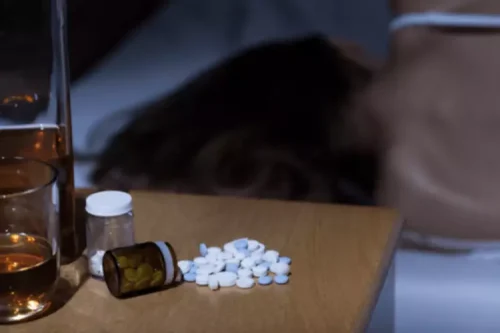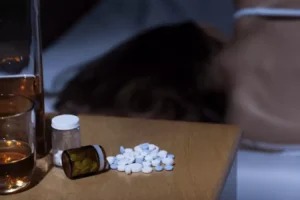Overcoming Guilt and Shame in Addiction Recovery

Guilt can serve as a motivational emotion, prompting individuals to make amends or change their behavior to align with their values. Overcoming these emotions and learning from the relapse is crucial for maintaining motivation and resilience in recovery. They may feel remorse for the pain and suffering they caused their family and friends, leading to a deep sense of guilt and shame. When it comes to addiction recovery, the road can be long and challenging. However, it s not just about getting sober – it s about maintaining sobriety for the long haul. Furthermore, both Yoga and exercise create an opportunity for positive self-talk, replacing negative thought patterns shame and guilt in recovery with messages of strength, resilience, and positivity.
Challenge Negative Self-Talk

Thrive Treatment offers outpatient substance abuse & mental health treatment for teens and adults at our Santa Monica, Woodland Hills, and Culver City facilities. Our expert, evidence-based clinical programs provide our clients with the tools needed to thrive. Cognitive Behavioral Therapy (CBT) and Dialectical Behavior Therapy (DBT) are different therapeutic approaches that can be tailored to help you conquer feelings of shame and guilt.
Mindfulness and Meditation Practices for Shame and Guilt
- Life can be amazing, just keep progressing and make adjustments along the way.
- The way you experience the emotion is influenced by your individual values, beliefs, upbringing, culture, etc.
- When you enter drug or alcohol treatment in Easton PA, you’ll explore the underlying reasons for your substance use.
- Different individuals may respond better to different types of therapies depending on their unique circumstances.
- However, you may fidget with your hands or arms to self-comfort during a confrontation.
- We may have to confront the ways our actions while intoxicated have hurt people we love.
- Shame can be caused by a wide range of factors — such as trauma or challenging social environments — and often causes feelings of deep inadequacy, lack of worth and the need to hide.
However, alternative therapies like Yoga and Exercise have proven to be useful tools in helping individuals cope with these emotions. Research indicates that ACT can be especially helpful for individuals struggling with addiction who are also dealing with shame and guilt. Studies have found that participants who underwent ACT treatment reported greater improvement in both their emotional regulation and substance use outcomes compared to those who received other forms of therapy. Often, individuals struggling with addiction feel shame and guilt for their actions in the past. However, it is essential to acknowledge that their actions do not define them entirely. Practicing self-forgiveness allows individuals to move beyond their past by acknowledging their mistakes without condemning themselves.
The shame spiral of addiction: Negative self-conscious emotion and substance use

Recovering isn’t just about breaking free from physical addiction; it’s also about healing emotionally. It’s not just about what you’ve done; it’s a pervasive feeling of being fundamentally wrong or damaged. Lumina Recovery’s premier addiction treatment services incorporate dual diagnosis care and specialized programs in order to best guide you and your loved ones on the path to support. You deserve recovery, and with the right resources and mindset, you can achieve it. Through self-compassion, forgiveness, and self-acceptance, it is possible to navigate these difficult emotions and cultivate a greater sense of resilience and well-being in recovery. Sharing your experiences with others who understand can help alleviate these emotions.

These results suggest that guilt and shame should be considered separately in the prevention of SUDs. Break away from guilt and shame and turn your focus to the present, on the person you are today. Know that you are worthy of forgiveness, and that you are also worthy of love. Our commitment to your recovery extends beyond your time in treatment. We provide comprehensive aftercare planning and support to help you maintain long-term sobriety and navigate life’s challenges post-treatment. Finding a balance and approaching these emotions with understanding and compassion is essential for your recovery.
You can think of guilt as a helpful emotion because it helps you behave in agreement with your values and moral code. Furthermore, peer support groups or recovery communities allow you to share your experiences and learn from others. Connecting with others who understand can alleviate feelings of isolation and provide invaluable support. Below are some tips for overcoming shame and guilt in addiction recovery. When you enter drug or alcohol treatment in Easton PA, you’ll explore the underlying reasons for your substance use. Shame and guilt often surface, but your counselor, therapist and/or peers can help you confront these feelings.
How to heal emotionally after a devastating natural disaster.
Often, they’ll get help for addiction when family or friends motivate them. Cognitive restructuring, a technique used in cognitive behavioral therapy, can help you reframe these thoughts. Guilt and shame are common emotions experienced by individuals in recovery from addiction or mental health issues. Yoga and exercise are both physical activities that can help release endorphins, which contribute to a feeling of happiness and wellbeing. These activities also provide a sense of accomplishment and achievement, which can help counter feelings of shame or guilt. Additionally, yoga incorporates mindfulness techniques, helping individuals better understand and manage their thoughts and emotions.

Questions About Treatment
Sober support systems are there to lean on in times of self-doubt, so lean on the people who love and care for you by sharing your feelings of shame and guilt. Research suggests that shame-prone individuals are more likely to https://ecosoberhouse.com/ engage in addictive behaviors as a way to cope with their negative emotions. Shame can also hinder the recovery process by making individuals feel unworthy of help, leading to poor self-esteem and feelings of hopelessness. In contrast, guilt-prone individuals may be more successful in overcoming addiction, as they tend to take responsibility for their actions and seek ways to make amends. Understanding the role of shame and guilt in addiction recovery requires valuable information on how these emotions work.
Admissions Process
- Furthermore, both Yoga and exercise create an opportunity for positive self-talk, replacing negative thought patterns with messages of strength, resilience, and positivity.
- Once you stop doing those things or taking actions that cause you to feel remorseful or sorry, the feelings can go away or not have a chance to show themselves.
- Those struggling with addiction require the support of others who understand the challenges they are facing in order to stay motivated, focused and accountable.
- Additionally, being a single-gender rehab promotes more open and relaxed communication among the people in treatment.
- Moreover, while both emotions can be accompanied by feelings of inadequacy, it’s not as all-consuming for those experiencing guilt versus shame.
This, in turn, is linked to depression, and the use of alcohol and drugs is often initially a form of self-medication. Antidepressants or anti-anxiety medications could potentially alleviate symptoms contributing to feelings of guilt or shame. While shame, guilt, and regret are often used interchangeably, there are important differences between each of these terms. Learning about these distinctions can help you better understand your own emotions and how to process them. Instead of allowing the guilt, shame, and denial to grow and fester, it’s time to make that most important step. If you or a loved one is struggling with addiction, it’s okay to reach out for help.
Tips to Overcome Guilt and Shame in Addiction Recovery
Once you realize that you are not alone in feeling this way, it will be easier to let go of the shame. Knowing the difference between guilt and shame helps you recognize the emotion you’re experiencing and what you need to do to address the problem. Guilt can heal you and those feelings of guilt are a sign of a healthy recovery.
